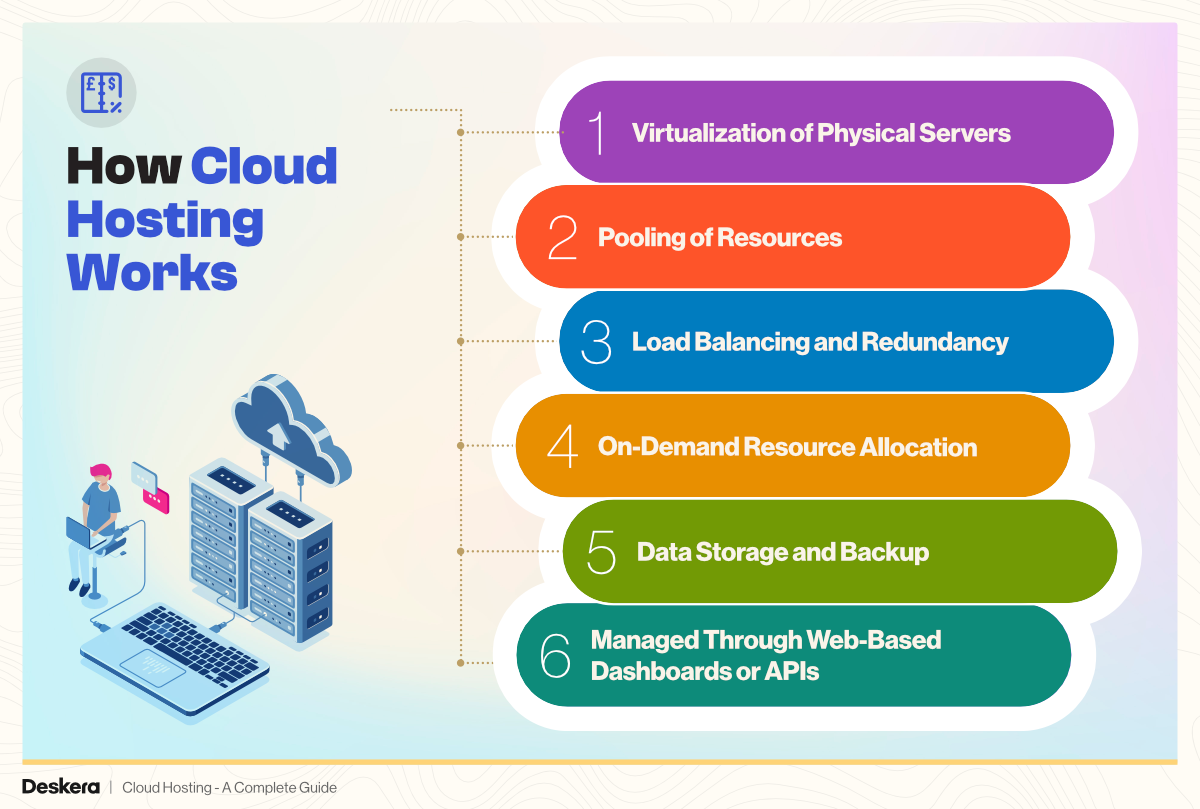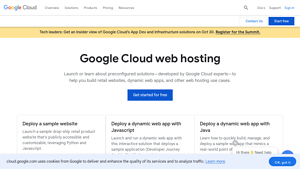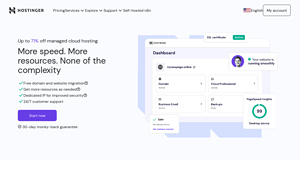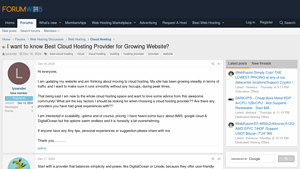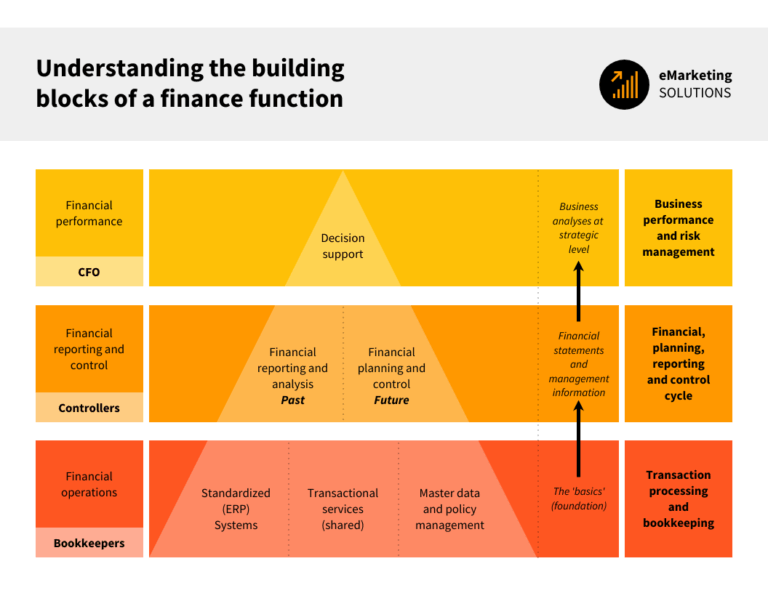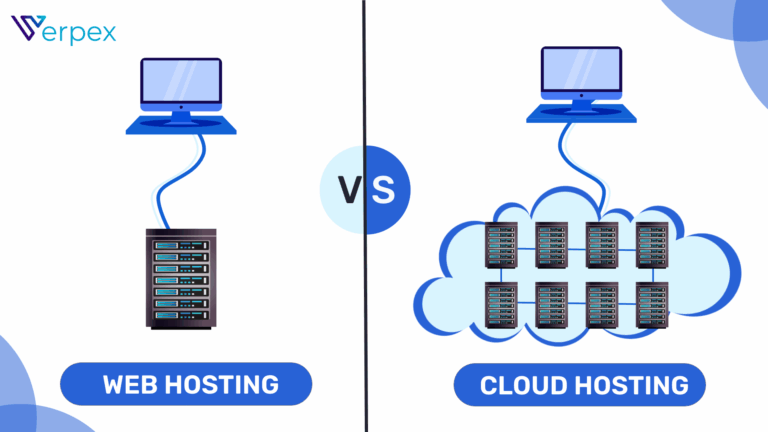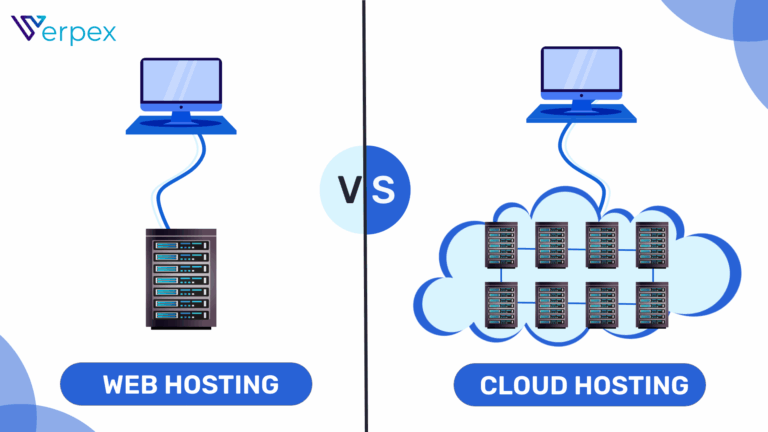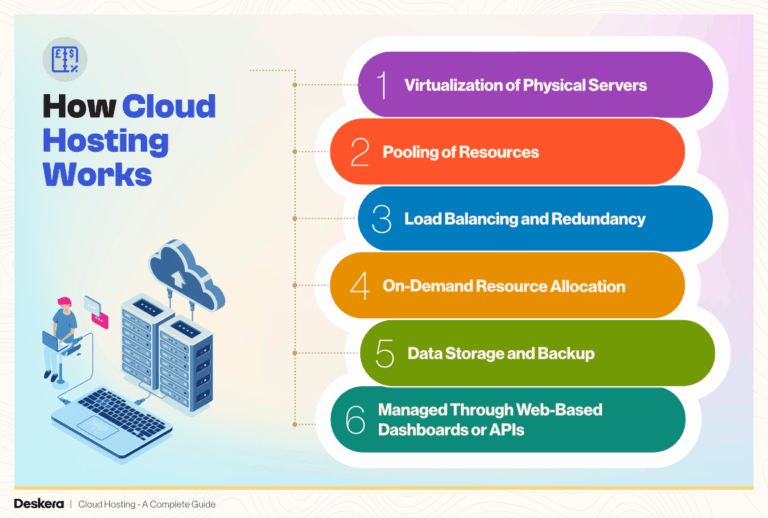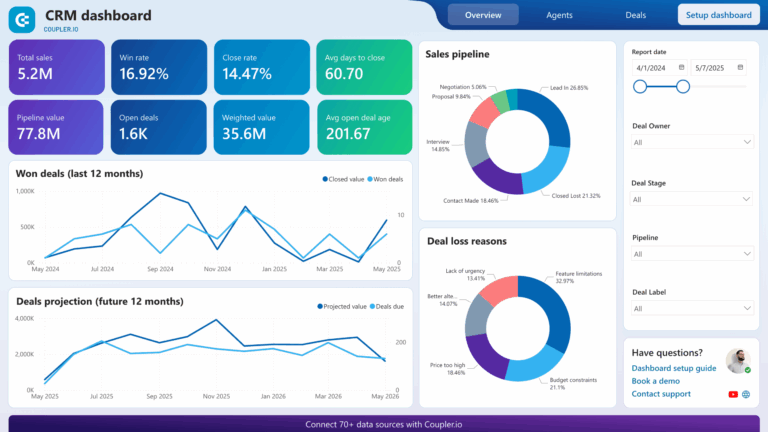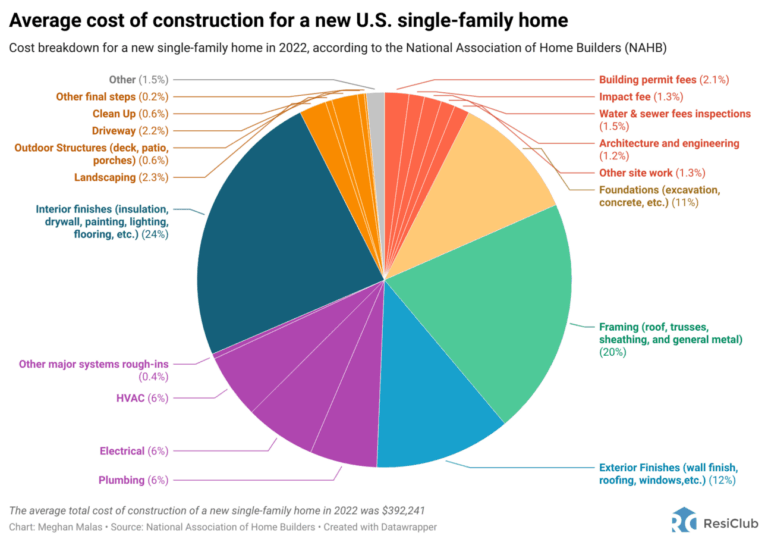Choosing a Cloud Web Hosting Provider: Our Top Picks for 2025
Choosing Your Digital Home: An Introduction to Web Hosting
When embarking on the journey of creating a website, one of the most crucial decisions you will make is selecting the right web hosting service. This choice lays the foundation for your online presence, impacting everything from website performance and security to customer experience and search engine rankings. However, with a plethora of hosting options available—ranging from shared hosting to dedicated servers, and from VPS to cloud hosting—many users find themselves overwhelmed and confused.
The Importance of Choosing Wisely
Choosing the right web hosting service is not merely a technical decision; it is a strategic one that can influence the success of your website. A reliable hosting provider ensures that your site is accessible, loads quickly, and can handle the traffic you expect. On the contrary, a poor choice can lead to frequent downtimes, slow loading speeds, and even potential security breaches. As a small business owner, blogger, developer, or individual starting a website, it is imperative to understand the different hosting types available to you and how they align with your specific needs.
Navigating the Hosting Landscape
The landscape of web hosting can be daunting, with various terms, features, and pricing structures that can leave even the most tech-savvy individuals scratching their heads. Shared hosting, for instance, is often the most economical choice but may not provide the resources necessary for high-traffic sites. On the other hand, dedicated servers offer unparalleled performance but come with a higher price tag and require more technical know-how. Cloud hosting presents a flexible alternative, distributing your website’s resources across multiple servers, but it may also introduce complexities that are unfamiliar to many users.
Your Guide to Informed Decisions
This guide aims to serve as a comprehensive resource for anyone looking to understand web hosting. From detailed explanations of different hosting types to comparisons of top providers, we strive to equip you with the knowledge needed to make an informed choice. Whether you are launching a personal blog, a business site, or a complex web application, understanding the nuances of web hosting will empower you to select the option that best suits your needs.
By the end of this guide, you will be well-equipped to navigate the web hosting landscape, compare the best providers, and ultimately choose a hosting solution that will support your website’s growth and success. Let’s dive in and explore the world of web hosting together!
The Best Cloud Web Hosting Providers of 2025
3. Bluehost – Best for eCommerce Success!
In the quest for the best web hosting provider for SaaS and eCommerce, various platforms like Bluehost, DreamHost, and Digital Ocean have garnered mixed reviews. This article explores their main features, such as performance, scalability, and pricing plans, catering to diverse needs from startups to established businesses. By analyzing user feedback, it aims to guide users in selecting a hosting service that aligns with their specific requirements and growth potential.
- Website: reddit.com
- Company Age: Approx. 20 years (domain registered in 2005)
5. Google Cloud – Scalable Solutions for Growing Businesses
Google Cloud web hosting offers versatile solutions suitable for a range of users, from bloggers to developers of dynamic websites. With features like Click to Deploy for quick setup and the ability to customize hosting environments, it caters to both novices and experienced professionals. Its robust infrastructure ensures high performance and scalability, making it an ideal choice for those seeking reliable cloud hosting solutions.
- Website: cloud.google.com
- Company Age: Approx. 28 years (domain registered in 1997)
4. Hostinger – Lightning-Fast Managed Cloud Hosting with Unmatched Reliability!
Hostinger’s managed cloud hosting service is designed for users seeking high performance and reliability, boasting up to 20X more resources than traditional hosting solutions. With a promise of 4X faster speeds and a 99.9% uptime guarantee, it caters to businesses and developers who require robust hosting for their websites. This offering is ideal for those looking to enhance their online presence with scalable and efficient cloud infrastructure.
- Website: hostinger.com
- Company Age: Approx. 23 years (domain registered in 2002)
7. DigitalOcean – Perfect for Scalable Growth
In the quest for the best cloud hosting provider for a growing website, options like DigitalOcean and Linode stand out for their exceptional balance of simplicity and robust performance. These providers feature user-friendly interfaces and comprehensive documentation, making them ideal for developers and businesses looking to scale efficiently. Their flexible plans cater to a range of needs, from startups to established enterprises, ensuring that users can seamlessly adapt as their websites grow.
- Website: forumweb.hosting
- Company Age: Approx. 9 years (domain registered in 2016)
5. Cloudways – Effortless Managed Cloud Hosting Simplified!
Cloudways is a managed cloud hosting platform designed for developers and businesses seeking flexibility and performance. It supports a variety of applications, including WordPress, Magento, Laravel, and PHP, allowing users to choose from multiple cloud providers. With its user-friendly interface and scalable plans, Cloudways caters to those who require robust hosting solutions without the complexities of traditional server management, making it an excellent choice for both startups and established enterprises.
- Website: cloudways.com
What is Web Hosting? A Plain English Guide
Web hosting is a service that allows individuals and businesses to make their websites accessible on the internet. To understand web hosting, think of it like renting a space for your house. Just as you need a physical location to live and store your belongings, you need a server to store your website’s files and make them available to visitors online.
What is a Server?
A server is a powerful computer specifically designed to store, process, and deliver data to other computers over the internet. When you create a website, all the files—such as images, text, and videos—need to be stored somewhere. This is where servers come in. They act like the foundation of your house, providing a place where everything is kept safe and organized.
There are different types of servers, each designed to meet various needs:
-
Shared Servers: This is like living in an apartment building where multiple tenants share the same space. It’s the most cost-effective option but can lead to slower performance if the server gets crowded.
-
Virtual Private Servers (VPS): Think of this as a condo. You still share the building with others, but you have your own private space that is more secure and offers better performance than a shared server.
-
Dedicated Servers: This is akin to owning your own house. You have complete control over the server and its resources, making it ideal for larger businesses with high traffic.
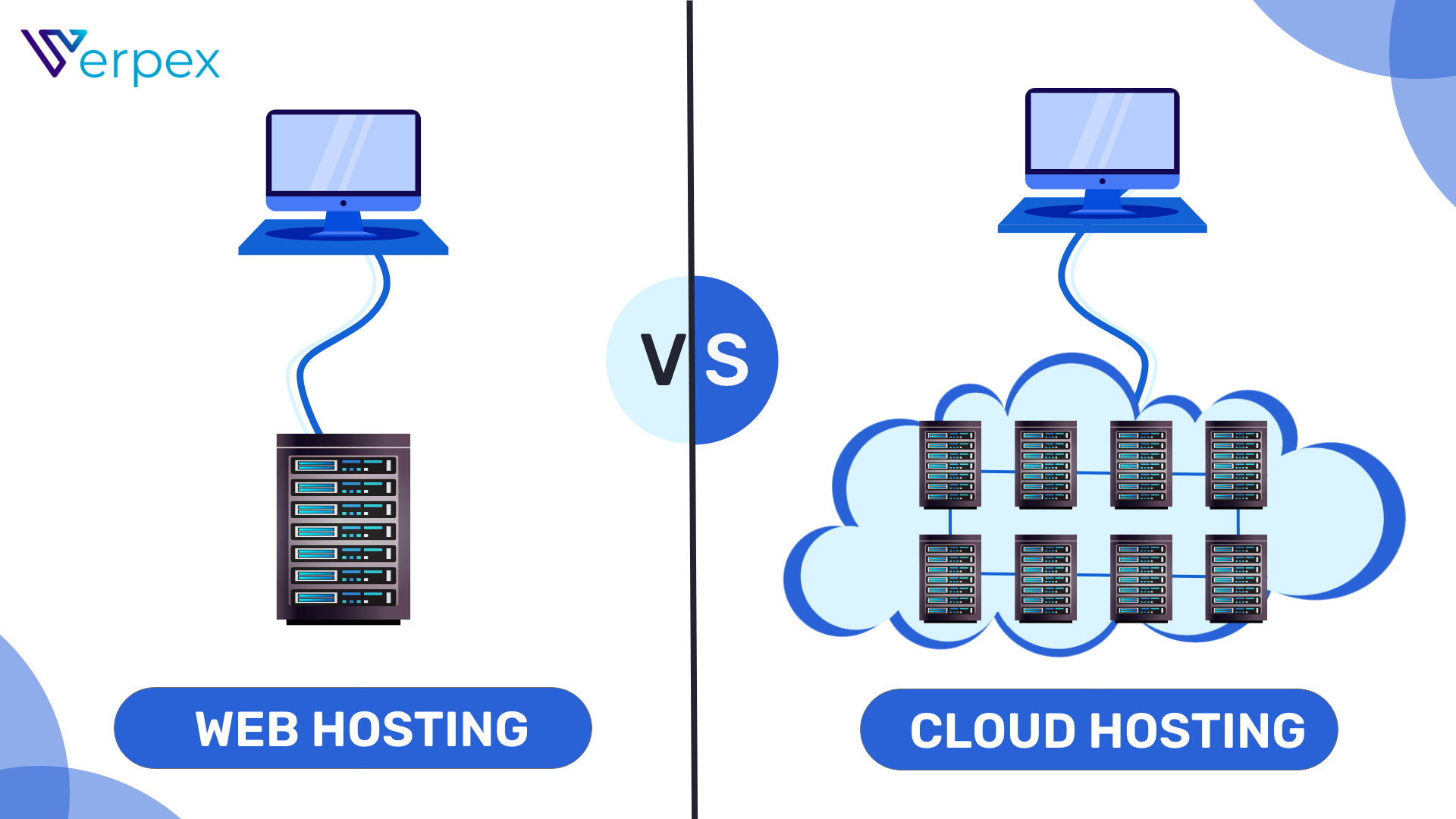
-
Cloud Hosting: Imagine a community of houses that can expand and contract based on your needs. Cloud hosting uses multiple servers to store your website, providing flexibility and scalability. If your site experiences a surge in traffic, additional resources can be tapped into without a hitch.
How Do Domains and Hosting Connect?
A domain name is like the address of your house. It’s how people find you on the internet. For example, when someone types “www.yourwebsite.com” into their browser, they are looking for your house. However, just having an address isn’t enough; you need a place to call home.
When you register a domain name, it points to your hosting server. This connection allows visitors to access the files stored on your server when they enter your domain name in their browser. Think of it this way: your domain name directs traffic to your server, similar to how a street address guides someone to your house.
To make this connection work, you need to configure your domain settings to point to your hosting provider’s servers. Once this is set up, anyone who enters your domain name can see your website.
Why Do I Need a Hosting Service?
If you want to create a website, you need a hosting service for several reasons:
-
Accessibility: Just like you need a physical location to invite friends over, you need a server to make your website accessible to visitors. Without hosting, your website would be invisible on the internet.
-
Storage: Hosting services provide the necessary storage for your website’s files, including text, images, and databases. Without it, you wouldn’t have a place to keep your website content.

-
Performance: A good hosting service ensures that your website runs smoothly and can handle traffic. For instance, if your website becomes popular and receives many visitors, a quality hosting service can provide the resources needed to keep it running fast and efficiently.
-
Support: Most hosting providers offer customer support to help you troubleshoot any issues. This is similar to having a landlord who can assist you if something goes wrong in your apartment.
-
Security: Hosting services often provide security features to protect your website from threats, like hackers and malware. This is akin to having a secure lock on your front door to keep your home safe.
In conclusion, web hosting is essential for anyone looking to establish a presence online. Just like renting a space for your house allows you to live and store your belongings, web hosting provides the foundation for your website, making it accessible and functional for visitors around the world. Whether you’re a small business owner, a blogger, or a developer, understanding web hosting is the first step toward building your online presence.
Types of Web Hosting: A Detailed Comparison
| Hosting Type | Best For | Performance | Price Range | Key Pro | Key Con |
|---|---|---|---|---|---|
| Shared Hosting | Beginners, personal websites | Basic, limited resources | $2 – $10/month | Cost-effective | Limited resources and performance |
| VPS Hosting | Small to medium businesses | Moderate, scalable resources | $20 – $100/month | More control and resources | More expensive than shared hosting |
| Dedicated Server Hosting | Large businesses, high-traffic sites | High, dedicated resources | $100 – $500+/month | Full control over server | High cost and management required |
| Cloud Hosting | Growing websites, apps | Highly scalable and flexible | $10 – $300+/month | Pay-as-you-go and high uptime | Can be complex to manage |
| Managed WordPress Hosting | WordPress users, bloggers | Optimized for WordPress | $15 – $50/month | Hassle-free management | Limited to WordPress only |
Shared Hosting
What It Is:
Shared hosting is one of the most basic and cost-effective types of web hosting. In this model, multiple websites share the same server resources, including bandwidth, storage, and processing power. This makes it an ideal choice for beginners or individuals running personal websites.
Who Should Use It:
Shared hosting is best suited for small businesses, bloggers, and personal websites that do not anticipate high traffic. If you are just starting and have a limited budget, shared hosting allows you to get your website online without significant upfront investment.
Pros:
– Cost-Effective: Shared hosting plans are generally the most affordable, making them accessible for new website owners.
– User-Friendly: Most providers offer easy-to-use interfaces and one-click installations for popular CMS platforms like WordPress.
– Support: Many shared hosting services come with customer support, which is beneficial for beginners.
Cons:
– Limited Resources: Since resources are shared, your website may experience slower performance during high traffic periods.
– Security Risks: Sharing a server with other websites can pose security risks; if one site is compromised, it may affect others on the same server.
– Less Control: Users have limited access to server configurations and settings, which can restrict customization.
VPS Hosting
What It Is:
Virtual Private Server (VPS) hosting offers a step up from shared hosting by providing dedicated resources on a virtual server. While multiple VPS instances share the same physical server, each operates independently, providing users with greater control and performance.
Who Should Use It:
VPS hosting is ideal for small to medium-sized businesses or developers who require more resources and customization options than shared hosting can provide. It’s also suitable for websites that have outgrown shared hosting but aren’t ready for a dedicated server.
Pros:
– More Control: Users have root access to their VPS, allowing for custom software installations and configurations.
– Scalability: VPS plans can often be upgraded easily as your website grows, ensuring you have the necessary resources.
– Better Performance: Compared to shared hosting, VPS offers improved performance and reliability, with dedicated resources.

Cons:
– Higher Cost: VPS hosting is more expensive than shared hosting, which can be a consideration for budget-conscious users.
– Management Required: Users may need some technical expertise to manage their VPS effectively, especially if they are responsible for server configurations and security.
Dedicated Server Hosting
What It Is:
Dedicated server hosting provides an entire server dedicated solely to one user or organization. This type of hosting offers maximum performance, security, and control, making it suitable for high-traffic websites or applications.
Who Should Use It:
Dedicated hosting is best for large businesses, e-commerce sites, or applications that require high performance and security. It’s ideal for websites expecting significant traffic or those that need specific server configurations.
Pros:
– Full Control: Users have complete control over server configurations, including the choice of operating system and software.
– High Performance: Dedicated servers provide optimal performance since all resources are allocated to one user.
– Enhanced Security: With no other websites on the server, the risk of security breaches is minimized.
Cons:
– High Cost: Dedicated hosting is significantly more expensive than shared or VPS hosting, which may not be feasible for smaller businesses.
– Management Complexity: Users must manage and maintain their servers, which may require technical expertise or hiring dedicated IT staff.
Cloud Hosting
What It Is:
Cloud hosting utilizes a network of virtual servers to host websites and applications. This allows for scalable resources, meaning you can easily adjust your hosting needs based on traffic fluctuations.
Who Should Use It:
Cloud hosting is ideal for growing websites, startups, and businesses with unpredictable traffic. It’s particularly beneficial for applications and websites that require high uptime and flexibility.
Pros:
– Scalability: Resources can be scaled up or down based on current needs, making it suitable for fluctuating traffic.
– High Uptime: With multiple servers working together, cloud hosting typically offers excellent uptime and reliability.
– Pay-as-You-Go: Many cloud hosting providers offer pay-as-you-go pricing, allowing you to only pay for the resources you use.
Cons:
– Complexity: Managing cloud servers can be more complex than traditional hosting types, which might require a learning curve.
– Variable Costs: While cloud hosting can be cost-effective, unpredictable traffic can lead to fluctuating monthly costs, which may complicate budgeting.
Managed WordPress Hosting
What It Is:
Managed WordPress hosting is specifically optimized for WordPress sites, offering features like automatic updates, security enhancements, and performance optimization. It allows users to focus on content creation rather than technical management.
Who Should Use It:
This type of hosting is ideal for bloggers, small businesses, and anyone using WordPress who prefers to outsource the technical aspects of website management. It is especially beneficial for those who want a hassle-free experience with their WordPress site.
Pros:
– Optimized Performance: Managed WordPress hosting is tailored for WordPress, ensuring fast loading times and high performance.
– Automatic Updates: Providers typically handle WordPress core and plugin updates, reducing the risk of security vulnerabilities.
– Expert Support: Support teams are usually well-versed in WordPress, offering specialized assistance.
Cons:
– Higher Cost: Managed WordPress hosting is generally more expensive than regular shared hosting options.
– Limited to WordPress: Users are restricted to hosting only WordPress sites, which may not be suitable for those needing a multi-platform solution.
Conclusion
Choosing the right type of web hosting depends on your specific needs, budget, and technical expertise. Shared hosting is great for beginners, while VPS and dedicated hosting cater to those needing more resources and control. Cloud hosting offers flexibility for growing businesses, and managed WordPress hosting simplifies the experience for WordPress users. By understanding the pros and cons of each hosting type, you can make an informed decision that best fits your website’s goals.
How to Choose a Hosting Provider: A 5-Point Buyer’s Guide
Performance and Uptime
When choosing a hosting provider, performance and uptime are among the most critical factors to consider. A website’s loading speed directly affects user experience, search engine rankings, and overall business success. Downtime can result in lost traffic, decreased revenue, and damage to your brand’s reputation.
Why It’s Important
- User Experience: Slow-loading websites frustrate users, leading to high bounce rates. A fast website keeps visitors engaged and increases the likelihood of conversions.
- SEO Rankings: Search engines like Google factor page speed into their ranking algorithms. A slow site can negatively impact your visibility in search results.
- Reliability: High uptime percentages (ideally 99.9% or higher) indicate that your website will be accessible to users most of the time. Frequent downtimes can cause users to lose trust in your brand.
What to Look For
- Uptime Guarantee: Check if the provider offers an uptime guarantee, often expressed as a percentage. A good benchmark is 99.9%.
- Performance Metrics: Look for information on the provider’s server response times and average loading speeds. Many hosting reviews provide benchmarks for these metrics.
- Content Delivery Network (CDN): Some hosting providers include CDN services, which can significantly enhance your website’s speed by caching content at various locations worldwide.
Customer Support
Effective customer support is essential, especially for those new to web hosting or running a business. Issues can arise at any time, and having access to knowledgeable support can save you time and prevent potential losses.
Why It’s Important
- Quick Resolution of Issues: Fast and effective support can minimize downtime and resolve technical challenges promptly.
- Guidance and Resources: A knowledgeable support team can assist you with setup, troubleshooting, and optimization, enhancing your website’s performance.
- Business Continuity: For small business owners, any downtime can mean lost revenue. Reliable customer support ensures that you can address issues swiftly.
What to Look For
- Support Channels: Check what support channels are available (live chat, email, phone). A variety of options is preferable for immediate assistance.
- Response Time: Look for hosting providers that guarantee quick response times, especially for live chat and phone support.
- Knowledge Base: A comprehensive knowledge base or help center can empower you to solve minor issues independently.
Pricing and Renewal Rates
Understanding the pricing structure of a hosting provider is crucial. While an attractive introductory price may lure you in, hidden fees and higher renewal rates can lead to unexpected costs down the line.
Why It’s Important
- Budget Management: Knowing the full cost of hosting, including renewal rates, helps you budget effectively for the long term.
- Value for Money: It’s essential to evaluate whether the services provided justify the costs. A low price may come with trade-offs in performance or support.
- Transparency: Transparent pricing structures build trust. Hidden fees can lead to frustration and a negative experience.
What to Look For
- Introductory vs. Renewal Rates: Always check the renewal rates for plans after the initial term. Some providers offer steep discounts for the first year but significantly increase prices upon renewal.
- Additional Costs: Be aware of any extra costs for services like domain registration, SSL certificates, backups, or email hosting.
- Money-Back Guarantee: Look for providers that offer a money-back guarantee, allowing you to try their services risk-free.
Security Features (SSL, Backups)
Security is paramount when it comes to web hosting. A secure website not only protects your data but also builds trust with your users.
Why It’s Important
- Data Protection: Websites are vulnerable to hacking attempts and data breaches. Effective security measures protect sensitive information.
- Trust and Credibility: Users are more likely to engage with a website that displays security certifications (like SSL) and appears trustworthy.
- Compliance: Depending on your industry, you may be required to comply with regulations regarding data protection.
What to Look For
- SSL Certificates: An SSL certificate encrypts data transmitted between your website and its visitors. Look for hosting providers that offer free SSL certificates.
- Regular Backups: Ensure that your provider offers automated backups at regular intervals. This feature is crucial for restoring your site in case of data loss or corruption.
- Additional Security Measures: Look for features like firewalls, DDoS protection, malware scanning, and security audits to enhance your website’s security.
Scalability and Future Growth
As your website grows, your hosting needs may change. A good hosting provider should offer scalable solutions to accommodate your growth without requiring a complete overhaul of your setup.
Why It’s Important
- Flexibility: Scalability allows you to upgrade your resources as traffic increases, ensuring your website remains accessible and performs well.
- Cost-Effectiveness: Instead of investing in a more expensive plan upfront, you can start with a basic package and scale as needed, optimizing your expenditure.
- Ease of Transition: A provider that supports scalability can make transitions smoother, minimizing downtime during upgrades.
What to Look For
- Variety of Plans: Check if the hosting provider offers a range of hosting types (shared, VPS, dedicated, cloud) to accommodate different growth stages.
- Upgrade Path: Understand how easy it is to upgrade your hosting plan and what the associated costs will be.
- Resource Allocation: Look for providers that allow you to customize your resources (like CPU, RAM, storage) to fit your specific needs as they evolve.
Conclusion
Choosing the right hosting provider involves careful consideration of several key factors, including performance and uptime, customer support, pricing and renewal rates, security features, and scalability. By taking the time to evaluate these elements, you can ensure that you select a hosting solution that meets your current needs and can grow with your business in the future. Remember, investing in a reliable hosting provider is crucial for the success of your website and, ultimately, your business.
Key Hosting Terms and Jargon Explained
cPanel
cPanel is a web-based control panel that provides a graphical interface and automation tools designed to simplify the management of web hosting accounts. It allows users to manage their websites, domains, databases, email accounts, and other hosting features without needing extensive technical knowledge.
Key Features of cPanel:
- User-Friendly Interface: cPanel’s intuitive design makes it easy for users to navigate various settings and tools.
- File Management: Users can upload, delete, and manage files directly through a file manager.
- Email Management: cPanel allows users to create and manage email accounts associated with their domain.
- Database Management: Users can create and manage databases using tools like phpMyAdmin.
- Software Installation: cPanel often includes installers for popular applications, making it easy to set up content management systems (CMS) like WordPress.
SSL Certificate
An SSL (Secure Socket Layer) certificate is a digital certificate that authenticates the identity of a website and enables an encrypted connection between the web server and a browser. This technology ensures that any data transferred between the two remains private and secure.
Importance of SSL Certificates:
- Data Encryption: SSL certificates encrypt sensitive information, such as credit card numbers and personal data, preventing interception by malicious parties.
- Trust and Credibility: Websites with SSL certificates display a padlock symbol in the browser address bar, which can increase user trust and confidence.
- SEO Benefits: Search engines, like Google, prioritize HTTPS (secure) websites over HTTP (non-secure) ones, potentially improving search rankings.
Bandwidth and Data Transfer
Bandwidth refers to the maximum amount of data that can be transferred over an internet connection in a given amount of time, typically measured in bits per second (bps). Data transfer, on the other hand, is the total amount of data that is transmitted to and from your website over a specific period, usually measured monthly.
Key Points:
- Bandwidth Limits: Hosting plans may specify a certain bandwidth limit, which can affect how many visitors your site can handle simultaneously.
- Data Transfer Allowance: Exceeding your data transfer allowance can lead to additional charges or throttled speeds. It’s crucial to choose a plan that meets your site’s expected traffic levels.
- Unmetered Bandwidth: Some hosting providers offer unmetered bandwidth, allowing unlimited data transfer without incurring extra fees, although this may still be subject to fair usage policies.
Storage (SSD vs. HDD)
Storage refers to the type of disk space allocated to your website. The two primary types of storage are Solid State Drives (SSD) and Hard Disk Drives (HDD).
SSD (Solid State Drive):
- Speed: SSDs offer faster read and write speeds compared to HDDs, resulting in quicker website loading times and improved overall performance.
- Durability: SSDs are more resistant to physical shock since they have no moving parts, making them more reliable in the long term.
- Cost: Generally, SSDs are more expensive than HDDs, which may influence hosting plan pricing.
HDD (Hard Disk Drive):
- Capacity: HDDs typically offer larger storage capacities at lower prices, making them a more cost-effective option for storing large amounts of data.
- Speed: While slower than SSDs, HDDs can still perform adequately for many types of websites, especially those with lower traffic volumes.
- Use Cases: HDDs are often used for backup storage and archiving due to their cost-effectiveness.
Domain Name System (DNS)
The Domain Name System (DNS) is a hierarchical system that translates human-readable domain names (like www.example.com) into IP addresses (like 192.0.2.1) that computers use to identify each other on the network.
How DNS Works:
- Domain Names: When you enter a domain name in a browser, the DNS system translates it into an IP address, allowing the browser to locate and connect to the correct web server.
- DNS Records: DNS includes various record types (like A records, CNAME records, and MX records) that specify different settings and configurations for a domain.
- Propagation: Changes made to DNS records can take time to propagate throughout the internet, which may affect how quickly changes take effect.
Uptime
Uptime refers to the amount of time that a web server is operational and accessible on the internet. It is typically expressed as a percentage, with higher percentages indicating better reliability and performance.
Importance of Uptime:
- Reliability: A high uptime percentage (typically 99.9% or above) means that your website is consistently available to users, which is crucial for maintaining traffic and revenue.
- Performance Monitoring: Many hosting providers offer uptime guarantees and monitoring services to ensure that your website remains accessible.
- Impact on SEO: Search engines prioritize websites with high uptime rates, as consistent availability can enhance user experience and trustworthiness.
By understanding these key hosting terms, you can make informed decisions when selecting a web hosting provider that meets your needs.
Frequently Asked Questions (FAQs)
1. What is cloud web hosting?
Cloud web hosting is a type of web hosting that utilizes a network of interconnected virtual servers in a cloud computing environment. This setup allows websites to draw resources from multiple servers, ensuring better performance, scalability, and reliability. Unlike traditional hosting methods, where a website is hosted on a single server, cloud hosting distributes the workload across various servers, which can dynamically adjust based on traffic and resource needs.
2. Can I host my own website using cloud hosting?
Yes, you can host your own website using cloud hosting. Many cloud hosting providers offer user-friendly platforms that allow individuals and businesses to set up and manage their websites without extensive technical knowledge. You typically need to choose a cloud hosting plan, select your domain name, and use website-building tools or content management systems (CMS) to create your site.
3. How much should I pay for cloud hosting?
The cost of cloud hosting can vary significantly based on the provider, the plan you choose, and the resources you need. Generally, prices can range from as low as $5 per month for basic plans to over $100 per month for more advanced, resource-heavy options. It’s essential to assess your specific requirements, such as storage, bandwidth, and support, to determine the best plan that fits your budget.
4. What’s the difference between a domain name and hosting?
A domain name is the web address that users type into their browser to access your website (e.g., www.example.com). It is essentially the online identity of your site. Hosting, on the other hand, refers to the service that stores your website’s files, databases, and content on a server, making it accessible to visitors on the internet. In short, a domain name is your website’s address, while hosting is the service that keeps your website online.
5. What are the benefits of using cloud hosting for my website?
Cloud hosting offers several benefits, including:
– Scalability: Easily adjust resources based on traffic demands without downtime.
– Reliability: If one server goes down, your website can still run on other servers, minimizing downtime.
– Performance: Improved load times and faster response times due to resource distribution.
– Cost-effectiveness: Many cloud hosting plans operate on a pay-as-you-go model, allowing you to pay only for the resources you use.
6. Is cloud hosting suitable for small businesses?
Yes, cloud hosting is highly suitable for small businesses. It provides the flexibility to grow as your business expands, allowing you to easily scale resources without the need for significant upfront investments in hardware. Additionally, many cloud hosting providers offer user-friendly interfaces, making it easier for small business owners without technical expertise to manage their websites effectively.
7. How secure is cloud hosting?
Cloud hosting is generally secure, but the level of security can vary depending on the provider and the specific plan you choose. Most reputable cloud hosting services implement robust security measures, such as data encryption, regular backups, firewalls, and intrusion detection systems. However, it’s crucial for website owners to also take proactive steps to secure their websites, such as using strong passwords, updating software regularly, and implementing SSL certificates.
8. Can I migrate my existing website to a cloud hosting platform?
Yes, you can migrate your existing website to a cloud hosting platform. Most cloud hosting providers offer migration services or tools to assist with the process. Depending on the complexity of your website, the migration may involve transferring files, databases, and configurations. It’s advisable to back up your website before starting the migration process to prevent any data loss.
Conclusion: Making Your Final Decision
Understanding Your Unique Needs
When it comes to selecting the best web hosting service, one size definitely does not fit all. The right choice for you will depend on a variety of factors, including your budget, the expected traffic to your site, and your level of technical expertise. For small business owners and bloggers, affordability and ease of use might take precedence, while developers may prioritize flexibility and advanced features. Understanding these needs will help you narrow down your options effectively.
Key Considerations for Your Decision
As you evaluate different hosting providers, keep in mind the most critical aspects that will impact your website’s performance:
-
Support: Reliable customer support is essential. Look for hosting services that offer 24/7 assistance through multiple channels, such as live chat, phone, and email. Good support can save you time and stress when issues arise.
-
Uptime: A host’s uptime guarantees reflect its reliability. Aim for a provider that offers at least 99.9% uptime, ensuring your website remains accessible to visitors.
-
Scalability: Your hosting needs may evolve as your business grows. Choose a service that allows for easy upgrades to accommodate increased traffic or additional resources without significant downtime.
Take the Next Step with Confidence
Armed with this knowledge, you can embark on your web hosting journey with confidence. Whether you’re launching a personal blog, a small business website, or a more complex project, there’s a hosting solution that fits your unique requirements. Remember to compare different plans, read user reviews, and assess trial options when available. Start your project today, and take the first step toward establishing your online presence!
Important Disclaimer
⚠️ Important Disclaimer
The information and reviews in this guide are for educational purposes, based on publicly available data and our own analysis. We are not affiliated with any hosting providers mentioned. Features, pricing, and performance change frequently. Always conduct your own research and check the provider’s official website before making a purchase.
